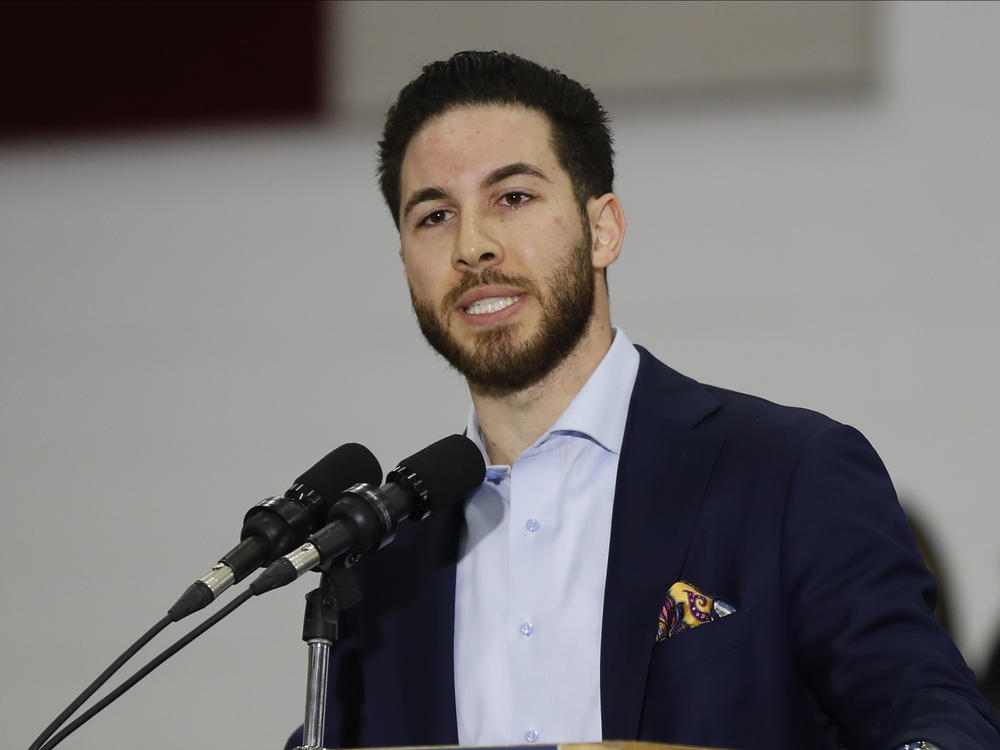Section Branding
Header Content
Michigan city ramps up security after 'WSJ' op-ed calls it 'America's jihad capital'
Primary Content
Dearborn, Mich. is ramping up its police presence after a Wall Street Journal opinion piece described the Detroit suburb as"America's jihad capital."
Dearborn Mayor Abdullah Hammoud described "an alarming increase in bigoted and Islamophobic rhetoric online targeting the city" in a social media post on Saturday and called it a "direct response" to the column, which was published on Friday.
Increased security will be stationed "at places of worship and major infrastructure points," said Hammoud, who is the city's first Muslim and Arab American mayor.
Experts cite an uptick in hate incidents nationwide against Arab, Muslim, and Jewish communities since the Israel-Hamas war broke out, which has killed more than 27,000 people in Gaza so far. The war began after the Oct. 7 attack by Hamas militants that killed more than 1,200 people in Israel.
According to Census figures, the metro Detroit area is home to the highest concentration of Arab Americans in the U.S. More than half of Dearborn's 100,000-plus residents are Arab Americans is also home to the largest mosque in northern America, the Islamic Center of America.
The op-ed's author, Steven Stalinsky, executive director of the Middle East Media Research Institute, defended the article, saying he aimed to call out alleged open support among some Dearborn citizens for the Oct. 7 attack.
"Hate against anybody is terrible, of course," Stalinsky told NPR. "And I don't accept that this article is inciting to that. If anything, the people that are cited in the article should be denounced and they're the ones supporting terrorism. This is about the issue of counterterrorism."
NPR was unable to confirm any of Stalinsky's allegations.
The Council on American-Islamic Relations (CAIR), a Muslim civil rights and advocacy organization, said in a statement that the op-ed falsely claims that pro-Palestine protesters support terrorism and that the column resorts to "smear tactics."
"We welcome the proactive approach taken by Mayor Hammoud to protect the Muslim community from potential attack based on the false claims in this inaccurate and inflammatory commentary," said CAIR-MI Executive Director Dawud Walid.
Neither Hammoud's office nor the WSJ responded to requests for comment.
The mayor of neighboring Dearborn Heights, Bill Bazzi, also released a statement in light of the op-ed and said its police department is also closely monitoring the situation — both on social media and on the ground.
President Biden also weighed in. In a social media post Sunday, Biden denounced anti-Arab hate without naming the WSJ.
"The opinion pages of a newspaper should be a place for the free exchange of ideas and the promotion of healthy debate, but editorial boards have a responsibility and an obligation to discern when an opinion piece contains hateful, dangerous rhetoric," said the Board of the Arab and Middle Eastern Journalists Association (AMEJA) in a statement to NPR. "Mr. Stalinksy's commentary demonized an entire American city, targeting a specific ethnic and religious group."
"When we look at these headlines, these stories, and these tweets that go viral, the key is to understand two things: there is a cottage industry out there that fans the flames of anti-Arab hate and anti-Muslim hate, specifically to advance, often I think, a political agenda," said Maya Berry, Executive Director of the Arab American Institute (AAI). "And the second part of it is to always, always understand that this hate has a very real and direct impact on people's lives."

